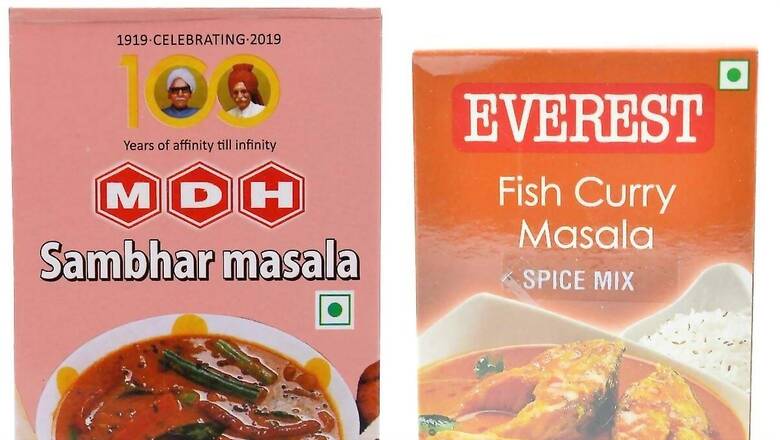
views
Nepal has become the latest country to ban spices from the brands MDH and Everest after reports of the presence of ethylene oxide in them. A report in news agency ANI suggests that Nepal’s Department of Food Technology and Quality Control has started testing the two Indian spice brands and has banned its import, consumption and sale.
“Everest and MDH brand spices which are being imported in Nepal have been banned from import. This comes after the news about traces of harmful chemicals in the spices, ban on import was imposed a week earlier and we also have banned the sales of it in the market,” Mohan Krishna Maharjan, spokesperson of Nepal’s Department of Food Technology and Quality Control told ANI.
This comes days after Hong Kong and Singapore had also banned spices from these two brands. The Centre for Food Safety of the government of the Hong Kong Special Administrative Region had collected samples of three of MDH’s pre-packaged spice products – ‘Madras Curry Powder’, ‘Sambhar Masala Powder’ and ‘Curry Powder’ and Everest Group’s ‘Fish Curry Masala’ for testing under its routine food surveillance programme when it detected the presence of the said pesticide. In Singapore too, the food regulator found carcinogenic ingredients in the products of both companies, following which authorities have directed the importer of the two brands of spices to initiate a recall of the products. Ethylene oxide is unfit for human consumption and a cancer risk with long exposure.
In fact, the US customs have refused a staggering 31 per cent of all spice-related shipments exported by MDH over the past six months due to salmonella contamination, An Indian Express report said that this refusal rate is double from the previous year’s 15 per cent.
Amid bans and rejections in different countries, the Spice Board of India has stepped in to ensure the safety and quality of Indian spice exports. The Techno-Scientific Committee conducted the root cause analysis, inspected processing facilities, and collected samples for testing in accredited labs. The recommendations of the committee have been implemented by the board.
The Food Safety and Standards Authority of India (FSSAI) has also initiated nationwide quality checks for various brands of powdered spices.
Explore in-depth coverage of Lok Sabha Election 2024 Schedule, Voter Turnout, Upcoming Phase And Much More At News18 Website




















Comments
0 comment